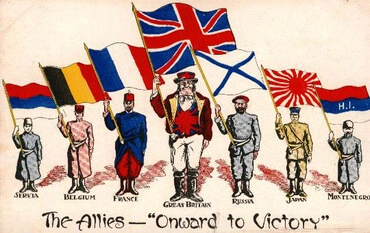1
En tid härefter hände sig att Gud satte Abraham på prov. Han sade till honom: »Abraham!» Han svarade: »Här är jag.»
2
Då sade han: »Tag din son Isak, din ende son, som du har kär, och gå bort till Moria land, och offra honom där såsom brännoffer, på ett berg som jag skall säga dig.»
3
Bittida följande morgon lastade Abraham sin åsna och tog med sig två sina tjänare och sin son Isak; och sedan han hade huggit sönder ved till brännoffer, bröt han upp och begav sig på väg till den plats som Gud hade sagt honom.
4
När nu Abraham på tredje dagen lyfte upp sina ögon och fick se platsen på avstånd,
5
sade han till sina tjänare: »Stannen I här med åsnan; jag och gossen vilja gå ditbort. När vi hava tillbett, skola vi komma tillbaka till eder.»
6
Och Abraham tog veden till brännoffret och lade den på sin son Isak, men själv tog han elden och kniven, och de gingo så båda tillsammans.
7
Då talade Isak till sin fader Abraham och sade: »Min fader!» Han svarade: »Vad vill du, min son?» Han sade: »Se, här är elden och veden, men var är fåret till brännoffret?»
8
Abraham svarade: »Gud utser nog åt sig fåret till brännoffret, min son.» Så gingo de båda tillsammans.
9
När de nu hade kommit till den plats som Gud hade sagt Abraham, byggde han där ett altare och lade veden därpå, sedan band han sin son Isak och lade honom på altaret ovanpå veden.
10
Och Abraham räckte ut sin hand och tog kniven för att slakta sin son.
11
Då ropade HERRENS ängel till honom från himmelen och sade: »Abraham! Abraham!» Han svarade: »Här är jag.»
12
Då sade han: »Låt icke din hand komma vid gossen, och gör honom intet; ty nu vet jag att du fruktar Gud, nu då du icke har undanhållit mig din ende son.»
13
När då Abraham lyfte upp sina ögon, fick han bakom sig se en vädur, som hade fastnat med sina horn i ett snår; och Abraham gick dit och tog väduren och offrade den till brännoffer i sin sons ställe.
14
Och Abraham gav den platsen namnet HERREN utser ; nu för tiden heter den Berget där HERREN låter se sig .
15
Och HERRENS ängel ropade för andra gången till Abraham från himmelen
16
och sade: »Jag svär vid mig själv, säger HERREN: Eftersom du har gjort detta och icke undanhållit mig din ende son
17
därför skall jag rikligen välsigna dig och göra din säd talrik såsom stjärnorna på himmelen och såsom sanden på havets strand; och din säd skall intaga sina fienders portar.
18
Och i din säd skola alla folk på jorden välsigna sig, därför att du lyssnade till mina ord.»
19
Sedan vände Abraham tillbaka till sina tjänare; och de stodo upp och gingo tillsammans till Beer-Seba. Och Abraham bodde i Beer-Seba.
20
En tid härefter blev så berättat för Abraham: »Se, Milka har ock fött barn åt din broder Nahor.»
21
Barnen voro Us, hans förstfödde, och Bus, dennes broder, och Kemuel, Arams fader,
22
vidare Kesed, Haso, Pildas, Jidlaf och Betuel.
23
Men Betuel födde Rebecka. Dessa åtta föddes av Milka åt Nahor, Abrahams broder.
24
Och hans bihustru, som hette Reuma, födde ock barn, nämligen Teba, Gaham, Tahas och Maaka.







